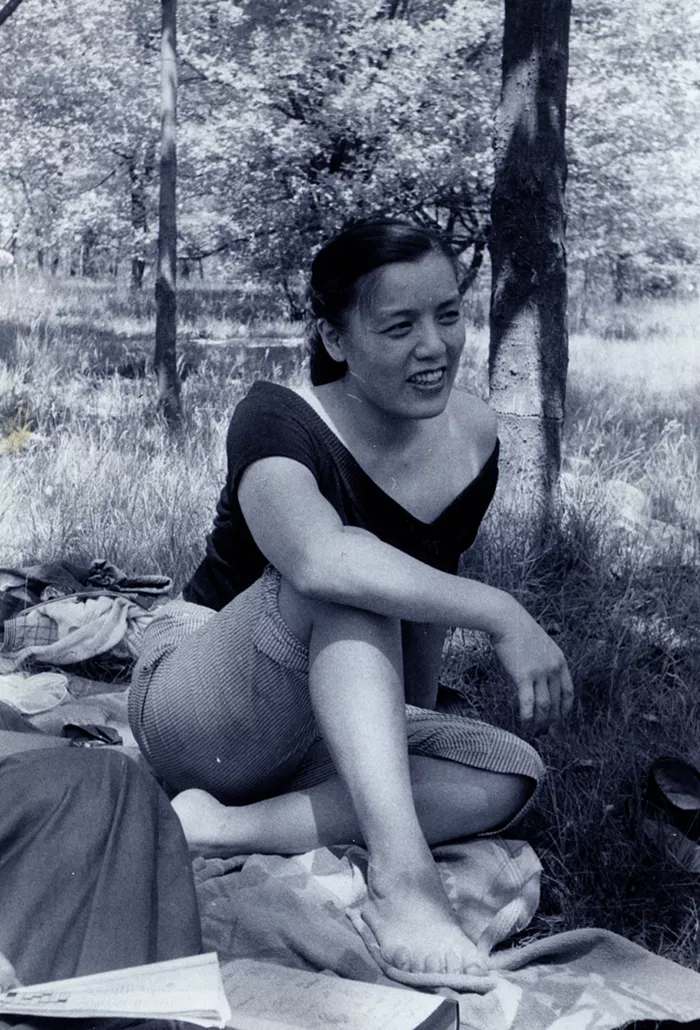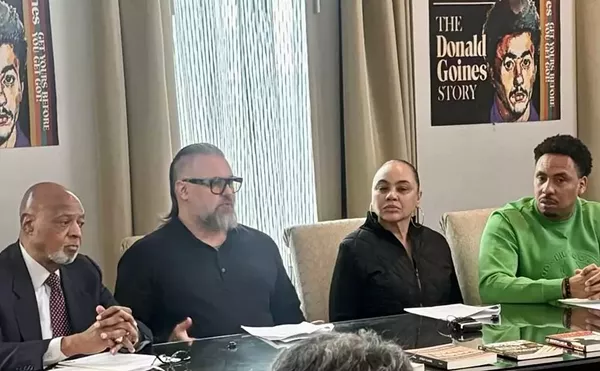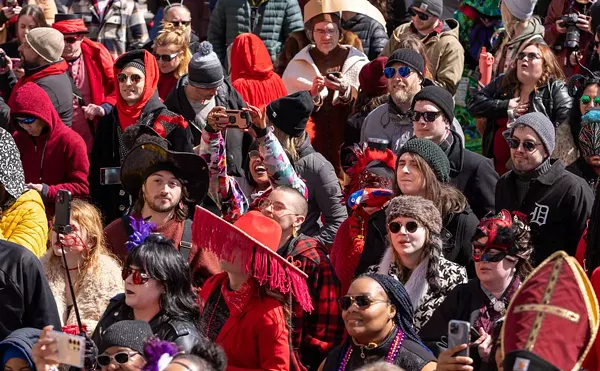“I feel so sorry for people who are not living in Detroit,” Grace Lee Boggs says as she trudges through a winter-brown field by the ruins of a factory. “It’s obvious by looking at it that what was doesn’t work … This is a symbol of how giants fall.”
That scene opens the POV documentary American Revolutionary: The Evolution of Grace Lee Boggs, a fascinating look at a woman now well into her 90s who has been an influential figure in Detroit’s radical movement for some 60 years. Directed by Grace Lee (no relation), it relies on a decade’s worth of interviews with Boggs, plus home movies, archival footage, and observations by her friends and colleagues.
The daughter of a Chinese restaurant owner in New York, Boggs became radicalized by a combination of studying philosophy and living in a rat-infested ghetto in Chicago. She moved to Detroit in the mid-1950s to edit a small socialist newspaper, where she fell in love with writer James Boggs, a Chrysler worker with an Alabama accent thick enough for the movie to use subtitles when he speaks. James Boggs’ 1963 book The American Revolution: Pages from a Negro Worker’s Notebook presciently predicted a time when automation would mean that large numbers of human beings would not be needed for work.
Grace Lee Boggs helped organize both the 1963 civil-rights march on Woodward Avenue, where the Rev. Martin Luther King spoke, and the conference where Malcolm X delivered his “Message to the Grassroots” speech. After the 1967 riot, as various leftist groups tried to channel the rage it unleashed into a more coherent political direction, crossing old-school class-war union militancy with black-power radicalism — like DRUM, the Dodge Revolutionary Union Movement, born out of a 1968 wildcat strike at the Dodge Main plant in Hamtramck, and led by the late General Gordon Baker — the two were behind-the-scenes philosophers and advisers. In Detroit: I Do Mind Dying, Dan Georgakas and Marvin Surkin wrote that James Boggs “was highly respected even when people did not agree with him” — no small thing in a movement marked by vicious sectarian invective.
In the film, Boggs recalls that the 1967 riot, which she prefers to call a “rebellion,” was an uprising against injustice that they hoped would spark a revolution — but in its aftermath, “looting and crime began to seem natural and normal.”
The film largely skips over the 1970s and 1980s, picking up with Boggs’ re-emergence in the early 1990s with a quieter, more evolutionary activism, working on building community through projects such as gardening and the “Detroit Summer” youth program, and becoming a hero to young Asian-Americans. This is a gap. The early 1970s in America were a period of collapse: the end of the post-World War II working-class prosperity, the abandonment of huge sections of major cities, and the demise of the ’60s radical movement — all followed by the Reagan counterrevolution. In Detroit, the decline of the auto industry and the crumbling of the city’s vibrant music scene amplified this. The film shows the Boggses at a neighborhood anti-crack march in 1990, but doesn’t discuss how the drug trade’s devastation was matched by the official response of militarized policing and mass incarceration. Filmmaker Lee says Boggs didn’t like to answer personal questions, but I would like to have seen her discuss how this era affected her ideology.
If the film does answer that question, it does so indirectly. Grace Lee Boggs is a relentless philosopher, constantly challenging people’s ideas. “Reflection” is important, she says; in one scene, she gets seriously vexed at a friend who says “talk is cheap.” But it’s not, Boggs says; conversation is how you develop the ideas that percolate up from the grass roots, instead of placing hope in a messiah. She ponders how once-revolutionary states ended up replicating the oppression they overthrew, and wonders if it’s possible to create a synthesis of Malcolm X’s militancy with Dr. King’s nonviolence. In the debate over whether it’s more important to change yourself or to change the world, she has the only logical answer, a classic Hegelian synthesis: You have to do both.
“A rebellion is an outburst of anger, but it’s not a revolution,” Boggs concludes. “Revolution is evolution toward something much grander.”
Being a “revolutionary” might seem anachronistic these days. If you’re effective or even a plausible threat, the government will try to crush you; if you’re not, you might spend your life in a tiny, marginal subculture riven by factional disputes. But what’s the alternative in a society where the working-class prosperity of 50 years ago has been obliterated, where one of the dominant political parties openly despises the idea that working and poor people should be able to make a decent living, and the other offers pitifully inadequate solutions that won’t offend its corporate masters? What needs to be done?
American Revolutionary: The Evolution of Grace Lee Boggs airs on PBS June 30.







